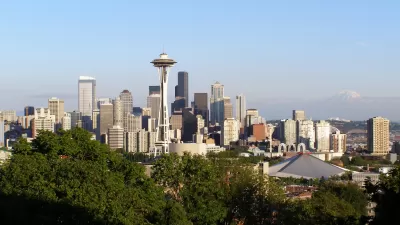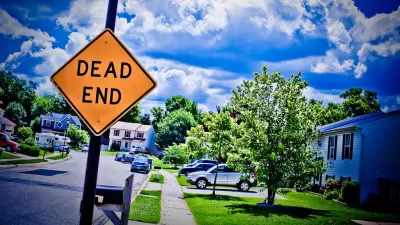Seattle's recent Housing and Livability Agenda (HALA) recommendations have created a sensational dialogue about zoning, affordability and neighborhood change. Chuck Wolfe explains how this may create an unprecedented basis for consensus in the city.
Writing in Seattle's Crosscut, Wolfe explores classic human hesitations about major zoning revisions designed to expand and fund diverse, affordable housing. Focusing on the controversy surrounding the recent release of Mayor Ed Murray's Housing and Livability Agenda (HALA) Report, he compares Seattle today with Connecticut 25 years ago, noting how "human nature breeds déjà vu" and cautions against "universal fears spurred by an evolving city."
Wolfe then emphasizes five Seattle trends that may have matured with the HALA Report, that could, in the end, ensure a more inclusive city:
Politics of Inclusion. While it may not please all interests at all times, Seattle’s approach to openness often goes beyond the legal requirements for public participation or comment period niceties. "Seattle has an unconscious place in its heart for the strident gadfly, and the associated politics of inclusion," he explains.
The Range of Funding Tools. Seattle has wrestled with direct and indirect methods to provide affordable and market rate housing at a variety of income thresholds for years. Proposed enhancements to these tools play a major role in the HALA Report.
The Public-Private Dance. Since 1992, Seattle has attempted to find the right mix of land-use regulatory approaches to provide for and/or fund affordable units. Based on a complex legal and political history largely has avoided any fee-based linkage or impact assessments, but HALA, through a "Grand Bargain," now proposes an unprecedented compromise approach involving these tools.
The Unprecedented "Grand Bargain." The HALA-associated Grand Bargain shows that a wide spectrum of people development/business communities, housing and equity advocates, environmental groups and organized labor) aligned on a method to achieve more affordable and market-rate units. The proposed Grand Bargain includes a commercial development fee in commercial zones for affordable housing and enhanced incentive/inclusionary zoning techniques in urban villages and centers, tied to increased density through zoning changes.
In the face of continuing public dialogue and City Council review, Wolfe concludes:
I did not serve on HALA, or any of its subcommittees, but I believe the HALA report and pending revisions to the Seattle Comprehensive Plan actually speak to the trends I’ve observed... [T]he report’s most significant recommendations can now get the positive attention that they deserve, allowing many of the trend lines I have identified since 1992 to coalesce, and resolve.... Now is an ideal time to move beyond misunderstandings and strident tones about broadening our affordable housing opportunities.
FULL STORY: Land use: Seattle’s oh-so-human hesitations about change

Alabama: Trump Terminates Settlements for Black Communities Harmed By Raw Sewage
Trump deemed the landmark civil rights agreement “illegal DEI and environmental justice policy.”

Planetizen Federal Action Tracker
A weekly monitor of how Trump’s orders and actions are impacting planners and planning in America.

The 120 Year Old Tiny Home Villages That Sheltered San Francisco’s Earthquake Refugees
More than a century ago, San Francisco mobilized to house thousands of residents displaced by the 1906 earthquake. Could their strategy offer a model for the present?

Opinion: California’s SB 79 Would Improve Housing Affordability and Transit Access
A proposed bill would legalize transit-oriented development statewide.

Record Temperatures Prompt Push for Environmental Justice Bills
Nevada legislators are proposing laws that would mandate heat mitigation measures to protect residents from the impacts of extreme heat.

Downtown Pittsburgh Set to Gain 1,300 New Housing Units
Pittsburgh’s office buildings, many of which date back to the early 20th century, are prime candidates for conversion to housing.
Urban Design for Planners 1: Software Tools
This six-course series explores essential urban design concepts using open source software and equips planners with the tools they need to participate fully in the urban design process.
Planning for Universal Design
Learn the tools for implementing Universal Design in planning regulations.
Clanton & Associates, Inc.
Jessamine County Fiscal Court
Institute for Housing and Urban Development Studies (IHS)
City of Grandview
Harvard GSD Executive Education
Toledo-Lucas County Plan Commissions
Salt Lake City
NYU Wagner Graduate School of Public Service




























